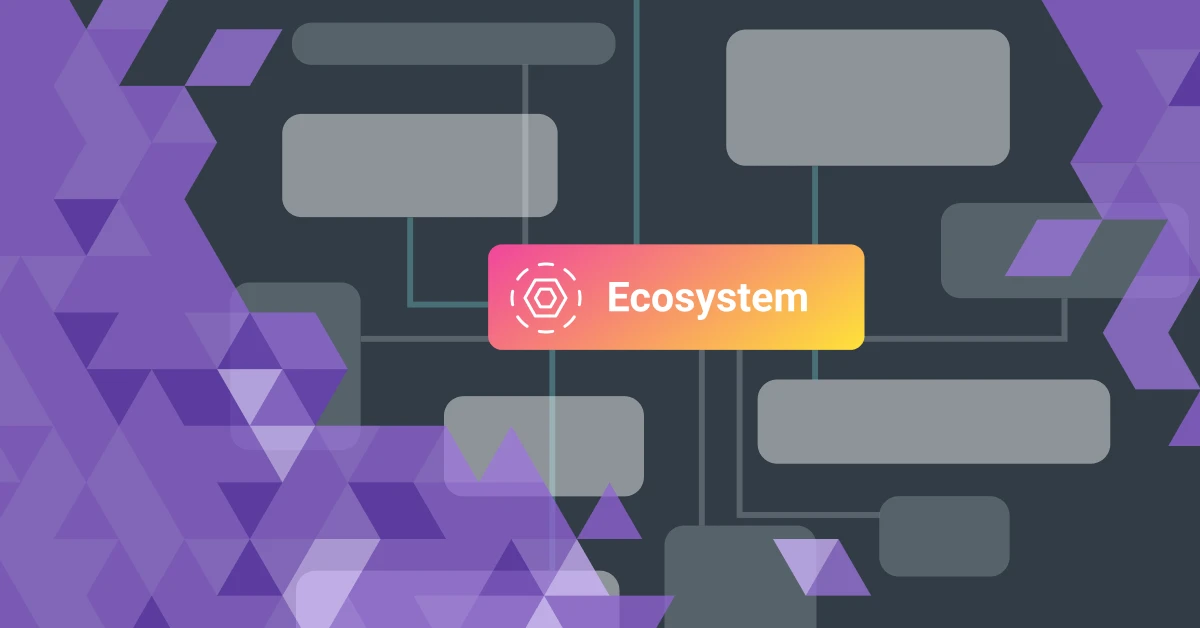10 Employee Retention Program Ideas for Frontline Managers

Over the past few years, the importance of frontline employee retention has significantly increased.
Build a Better Employee Experience with Beekeeper
As high turnover rates among frontline workers can have a detrimental impact on productivity, customer satisfaction, and overall business success, organizations are putting increasing focus on employee retention programs.
Retaining talented and experienced frontline employees is crucial to maintaining a competitive edge. Losing skilled frontline workers can lead to increased recruitment costs, decreased productivity, and reduced customer satisfaction.
Organizations have started investing in initiatives and programs that focus on enhancing the employee experience, providing opportunities for growth and development, and recognizing and rewarding frontline employees’ contributions.
At Beekeeper, we’ve seen how organizations have shifted their focus towards employee engagement, satisfaction, and well-being, recognizing the positive impact it has on productivity and customer satisfaction.
We’ll be looking at frontline workforce retention by covering:
- The root causes of high turnover
- Ideas for creating an employee retention strategy
- How to create a better frontline employee experience
Let’s dive in.
Understanding the Root Causes of High Frontline Employee Turnover
What actually causes frontline workers to seek employment elsewhere?
Here are four systemic causes for high turnover:
1. Limited Communication Channels
Having limited communication channels means that the tools and methods employees have to communicate effectively with each other and management aren’t adequate. This often creates a lack of opportunities for employees to share valuable concerns, ideas, and feedback.
Limited communication channels:
- Block or slow down the flow of information between employees and management, leading to misunderstandings and frustration. When employees aren’t able to communicate their concerns, needs, or suggestions effectively, they may feel undervalued and unsupported, ultimately leading to high turnover overall.
- Create a lack of transparency, as employees don’t have the tools to stay up-to-date about important decisions, changes in policies, or future plans. They may feel disconnected from the company’s vision and goals, which can break down trust and loyalty and make it more likely that they seek opportunities elsewhere.
- Interfere with the development of strong relationships between employees and their supervisors or managers. Effective communication is essential for providing guidance, feedback, and support to employees. When these channels are limited, it becomes difficult for frontline employees to receive the guidance they need. This lack of support can lead to engagement and job satisfaction, ultimately contributing to turnover.
- Slow down collaboration and teamwork within an organization. Frontline organizations rely on teamwork. When communication channels are limited, employees may struggle to coordinate their efforts effectively, leading to decreased productivity and customer dissatisfaction.
By providing multiple avenues for communication and investing in effective communication channels, organizations can create a culture of transparency, trust, and collaboration, leading to increased job satisfaction and lower turnover rates.
2. Lack of Recognition and Feedback
Recognition is a fundamental need that fuels motivation and job satisfaction. When employees feel valued and appreciated for their contributions, they’re more likely to stay engaged and committed to their work.
Frontline employees often face demanding work environments, dealing with difficult customers or resolving complex issues on a daily basis. Customer service representatives, sales personnel, or retail staff are often the face of the company and are directly responsible for delivering quality service to customers. Without recognition for their hard work and dedication, they may feel undervalued and unappreciated, leading to feelings of frustration and dissatisfaction.
Feedback provides employees insights into their performance, allowing them to identify areas for improvement and make necessary adjustments. Without regular feedback, frontline employees may struggle to understand how they’re doing, leading to stagnation and disillusionment.
On a company-wide scale, a lack of feedback can create a culture of indifference. When employees witness their colleagues going unnoticed or receiving minimal feedback, they may feel that their own efforts are unimportant and go unrewarded. This can lower morale, leading to increased turnover as employees seek recognition and feedback elsewhere.
Implementing regular recognition programs, providing constructive feedback, and fostering a supportive work environment can go a long way in improving employee satisfaction and reducing turnover rates. By recognizing and appreciating the work frontline employees do, organizations can cultivate a motivated and engaged workforce that’s more likely to stay committed and loyal in the long run.
3. Poor Onboarding Processes
Onboarding is the process of integrating new employees into an organization and equipping them with the necessary knowledge, skills, and resources to succeed in their roles. When this process is inadequate or inefficient, it can:
- Leave new employees feeling disconnected from the organization and its goals. Without a proper introduction to the company’s mission, values, and culture, frontline employees may struggle to understand their role and how their work contributes to the overall success of the organization. This lack of connection can lead to a sense of disengagement and a decreased sense of purpose, ultimately driving turnover as employees seek opportunities where they feel more aligned with the company’s vision.
- Result in a lack of clarity about job expectations and performance standards. Without clear guidance on their responsibilities, performance metrics, and expectations to deliver quality service to customers, employees may feel overwhelmed, uncertain, and unsupported, negatively impacting their job satisfaction and performance.
- Prevent the development of necessary skills and knowledge. Without proper training and support, frontline employees may struggle to perform their job effectively and efficiently. This can lead to feelings of incompetence and a lack of confidence, further increasing turnover rates as employees seek opportunities where they can develop and grow.
Improving the onboarding process can include clear communication of job expectations, ongoing training and development opportunities, and regular check-ins to provide feedback and support. By ensuring that new employees are properly equipped and supported from the start, organizations can enhance engagement, job satisfaction, and ultimately reduce turnover rates.
4. Poor Access to Resources and Training
The lack of proper access to resources and training negatively impacts:
- Efficiency: Frontline employees need access to tools, equipment, and technology that enable them to provide quality service to customers. Without these resources, employees may struggle to meet customer expectations, leading to dissatisfaction for both employees and customers.
- Effectiveness: Frontline employees need proper training to understand their job responsibilities, acquire necessary skills, and stay updated on industry trends and best practices. When employees don’t have access to training programs, they may feel ill-prepared and unsupported in their roles. This can lead to decreased job satisfaction, lower performance, and ultimately result in their decision to leave the organization in search of better opportunities.
- Professional growth and development: When employees feel that their growth is limited due to a lack of resources and training opportunities, they may become stagnant in their roles. This can create frustration and a desire to explore other organizations that offer more opportunities for advancement and skill development.
Providing employees with the necessary resources and training can include investing in the right technology, equipment, and tools. Regular training programs and opportunities for skill development also ensure that employees feel supported and have opportunities for growth within the organization. By doing so, organizations can reduce turnover rates and create a more engaged and satisfied frontline workforce.
How to Achieve Higher Employee Retention Rates with Beekeeper
At Beekeeper, we’ve worked to address each of these pain points and provide a practical solution for frontline organizations. Here’s how:
- Limited Communication Channels: Beekeeper provides a centralized platform that offers multiple channels for communication, including instant messaging, group chats, and news feeds. This allows frontline employees to easily connect with each other and management, fostering open and transparent communication. By providing employees with a platform to share concerns, ideas, and feedback, Beekeeper helps address the frustrations caused by limited communication channels. This can improve job satisfaction and decrease turnover rates.
- Lack of Recognition and Feedback: Beekeeper enables organizations to implement regular recognition programs and provide constructive feedback to frontline employees. The platform can be used to publicly acknowledge and appreciate the efforts of frontline workers, boosting morale and job satisfaction. Also, Beekeeper allows for real-time feedback and performance evaluations, ensuring that employees receive the necessary insights to improve their performance. By promoting a culture of recognition and feedback, Beekeeper helps retain frontline employees by making them feel valued and appreciated.
- Poor Onboarding Processes: Beekeeper can enhance the onboarding process by providing a platform for clear communication of job expectations, training materials, and resources. New employees can easily access information about the company’s mission, values, and culture, helping them feel connected and aligned with the organization. The platform also enables managers to check in regularly with new hires, providing support and guidance during the onboarding process. By improving the onboarding experience, Beekeeper helps frontline employees feel more engaged and motivated, reducing turnover rates.
- Poor Access to Resources and Training: Beekeeper can serve as a knowledge-sharing platform, providing frontline employees with easy access to resources and training materials. The platform can host training videos, documents, and other learning materials, ensuring that employees have the necessary tools to perform their jobs effectively. Beekeeper also facilitates communication between employees and trainers, allowing for real-time support and clarification. By providing access to resources and training opportunities, Beekeeper helps frontline employees develop their skills, leading to increased job satisfaction and decreased turnover.
With a frontline success system, Beekeeper empowers organizations to create a better employee experience and boost employee retention.
P.S. Want a real-life example of maintaining amazing staff? Download this case study to find out how Fitler Club, an innovative hospitality space, reduced turnover from 78% in 2019 to 10% in 2021 with the help of Beekeeper.
10 Ways To Retain Your Frontline Workforce With a Better Employee Experience
Retaining workers by providing a better employee experience is crucial for the long-term success of any frontline organization. Here are ten methods and tools that can help:
1. Comprehensive Onboarding
Implementing a structured onboarding process helps new employees acclimate to their roles and the organization. Providing clear expectations, introducing them to company values and culture, and establishing a support system all create the foundation for a better employee experience throughout their time with the organization.
2. Ongoing Training and Development
Offering regular training programs and opportunities for professional growth shows employees that the company cares about their development. Access to workshops, seminars, and courses enhances skills and knowledge, but it can be tricky to coordinate these opportunities for frontline teams that are often distributed across different locations.
Beekeeper’s solution? Mobile-first, gamified learning through our integration with microlearning platform EduMe Mobietrain allows employees to learn in bite-sized amounts wherever they are and at their own pace.
3. Performance Feedback and Recognition
Establishing a system for providing regular feedback on performance and recognizing and rewarding employees for their achievements boosts morale and motivation, making employees feel valued and appreciated.
4. Clear Career Pathways
Creating clear career progression pathways for frontline employees provides them with opportunities for upward mobility, lateral moves, and skill development, allowing them to envision a future within the organization.
5. Access to Resources and Technology
One area that often gets overlooked in frontline organizations is access to the right communication tools that facilitate collaboration. While the majority of communication tools are well-suited for individuals and desk-based workers, they’re not necessarily great for the reality of frontline work.
At Beekeeper, we’ve developed a set of frontline-focused tools so that distributed teams can access information and communicate on one, mobile-friendly platform.
6. Communication and Transparency
Encouraging feedback and suggestions from frontline employees keeps teams informed about company updates, goals, and strategic initiatives and fosters open and transparent communication channels within the organization.
7. Work-life Balance
Recognize the importance of work-life balance and promote policies and practices that support it. Offer flexible work arrangements, paid time off, and employee assistance programs to help employees manage their personal and professional lives.
8. Employee Wellness Programs
Implementing wellness initiatives that promote physical and mental well-being can include providing access to on-site healthcare, offering stress management workshops, and promoting a safe work environment.
9. Strong Leadership and Mentorship
Encouraging mentorship programs that pair experienced employees with newer ones fosters a sense of support and growth and develops strong leaders who can effectively guide and support frontline employees.
10. Employee Surveys and Feedback
Conducting regular employee surveys to gather feedback on their experience within the organization helps identify areas for improvement so organizations can make necessary changes to enhance the employee experience.
At Beekeeper, we’re taking it one step further to help frontline organizations gather feedback as efficiently as possible. In addition to our Surveys feature, we’re also launching our Frontline Intelligence package that uses GDPR-compliant AI technology to detect employee sentiment without the need for surveying employees directly.
By implementing these practices and providing the necessary tools, frontline organizations can create a better employee experience, leading to increased job satisfaction, engagement, and ultimately, higher retention rates.
Frontline Employee Retention: Key Takeaways
Frontline workforce retention is a critical challenge that organizations must address in order to maintain productivity, customer satisfaction, and overall business success. Root causes of high turnover among frontline employees include
- Limited communication channels
- Lack of recognition and feedback
- Poor onboarding processes
- Poor access to resources and training
To help address these challenges, organizations can:
- Invest in initiatives and programs that enhance the employee experience
- Provide opportunities for growth and development
- Recognize and reward employees’ contributions
Beekeeper offers a practical solution for frontline organizations by providing a centralized communication platform that allows for open and transparent communication, regular recognition and feedback, improved onboarding processes, and access to resources and training.
By implementing these practices and providing the necessary tools, organizations can create a better employee experience, leading to increased job satisfaction, engagement, and ultimately, higher retention rates. Beekeeper’s solutions can help organizations achieve these goals by addressing the specific needs of frontline employees and empowering them to succeed in their roles.

About the author
Beekeeper
We make frontline lives easier, work safer, and teams more connected so businesses can reach new heights. At Beekeeper, we’re dedicated to making frontline lives easier by connecting workers with the tools, support, and information they need to feel valued, do their best work, and drive the business forward.







